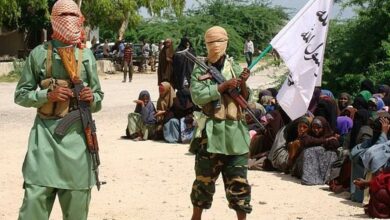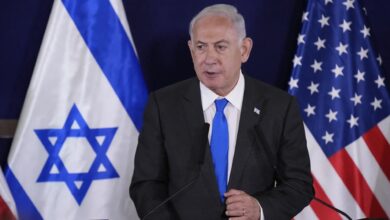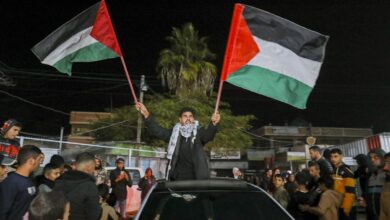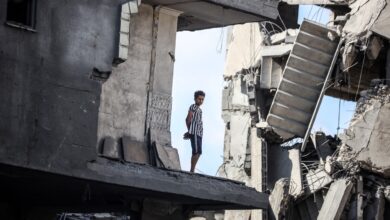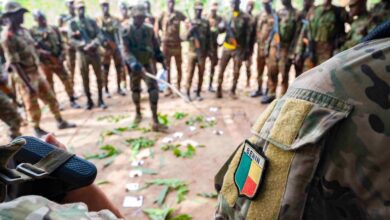A United Nations peacekeeper was killed and four others injured in an improvised explosive device attack on a convoy in central Mali’s Mopti region on Saturday, April 20, the U.N. mission in the country said.
The incident occurred in the morning when a “mine or an explosive device (IED)” struck the convoy between Douentza and Boni, MINUSMA said in a statement, adding that a Rapid Reaction Force was immediately deployed.
“The peacekeepers reacted proactively and robustly, which neutralized and detained attackers, ” MINUSMA Force Commander Dennis Gyllensporre said.
The statement did not give the nationality of the dead and injured, but some reports say they were Egyptian.
The spokesperson for the U.N. Secretary-General in a later statement confirmed the casualties were from Egypt, and said that one assailant was killed and eight others were apprehended.
Al-Qaeda’s branch in Mali, the Support Group for Islam and Muslims (JNIM), claimed responsibility for the attack, saying militants had detonated an explosive device “against invading “MINUSMA” forces.”
In a separate statement, JNIM claimed its fighters on April 17 ambushed a MINUSMA convoy between Timbuktu and Bambara-Maoudé, damaging or destroying five trucks.
JNIM was formed in 2017 by the merger of several smaller groups including the Sahara branch of al-Qaeda in the Islamic Maghreb, Ansar Dine and Al-Mourabitoun. Its leadership has pledged allegiance to al-Qaeda leader Ayman al-Zawahiri.
“This attack shows once again that the action of MINUSMA is defeating terrorists who are desperate to derail the peace process in Mali,” said Mahamat Saleh Annadif, the Special Representative of the Secretary-General in Mali and Head of MINUSMA, adding that MINUSMA has significantly strengthened its operations in the central region in support of the Mali’s defense and security forces.
Annadif noted that attacks against peacekeepers can constitute war crimes under international law.
MINUSMA is considered one the most dangerous U.N. peacekeeping missions, and Saturday’s incident brings to 17 the number of blue helmets have died this year alone.
On January 25, two Sri Lankan blue helmets died and six were injured in after their vehicle hit a mine near Douentza. The previous day, a peacekeeper from Burkina Faso was injured in an IED on another convoy near Douentza.
The Mopti region has also seen a number of attacks on Malian forces and on the G5 Sahel Joint Force.
But attacks on peacekeepers are not confined to restive central Mali.
On January 20, gunmen killed 10 Chadian peacekeepers and injured at least 25 others in an attack on a U.N. camp in Aguelhok, around 120 km north of Kidal.
And on April 3, two peacekeepers were injured in a mortar and gun attack on a U.N. base in Kidal.
The recent unrest in the Sahel region began in Mali in 2012 with Tuareg separatist uprising against the state, which was exploited by Islamist extremists linked to al-Qaeda who took key cities in the desert north.
France began its Operation Serval military intervention in its former colony early the next year, driving the jihadists from the towns, but the militant groups morphed into more nimble formations operating in rural areas, sometimes winning over local populations by providing basic services and protection from bandits.
Large parts of Mali remain outside government control, and the insurgency has gradually spread to central and southern regions of the country and across the borders into neighboring Burkina Faso and Niger.
A peace deal was signed in 2015 between the government and some armed groups designed to isolate the militant Islamists, but the jihadist insurgency has shown no signs of weakening.
The French mission in Mali evolved in August 2014 into the current Operation Barkhane, which has 4,500 personnel deployed with a mandate for counter-terrorism operations across the Sahel region, with 2,700 soldiers in Mali to support poorly-equipped local military forces.
Troops deployed to Barkhane work alongside the U.N. MINUSMA stabilization mission in Mali, which began in 2013 and has about 12,000 troops and 1,750 police deployed, as well as the G5 Sahel joint counter-terrorism force that aims to train and deploy up to 5,000 personnel.
This post was updated on April 20






